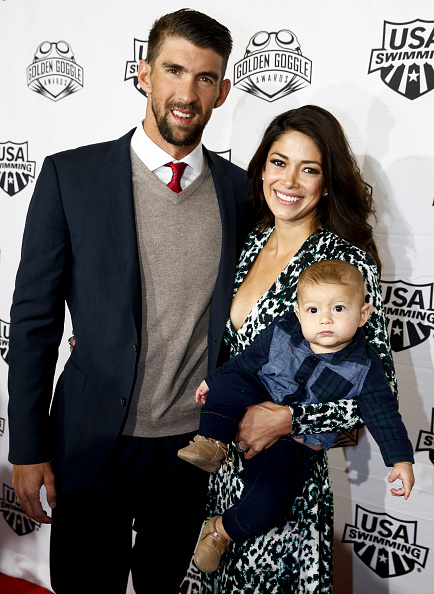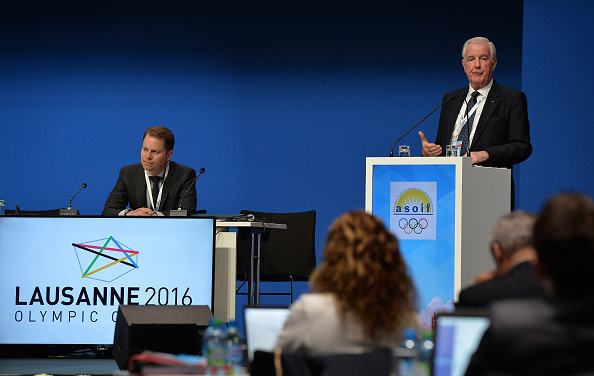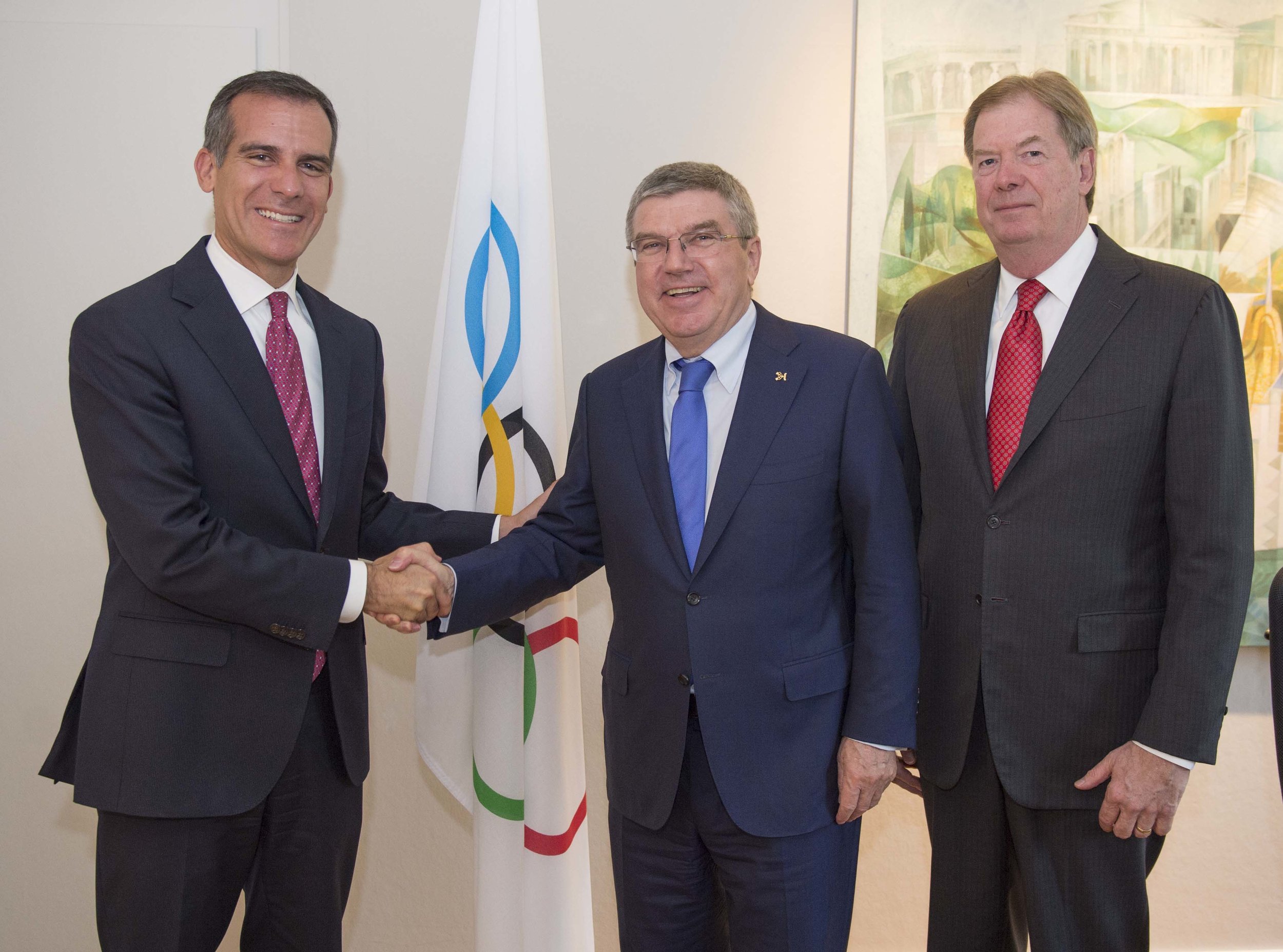Last December, in the second of his two World Anti-Doping Agency commissioned (but, to be clear, independent) reports into allegations of doping in Russia, the Canadian law professor Richard McLaren wrote:
“It is time for everyone to step down from their positions and end the accusations against each other. I would urge international sport leadership to take account of what is known and contained in the [two] reports, use the information constructively to work together and correct what is wrong.”
It is through that prism that one ought to view, one, the love note the International Olympic Committee dropped in classic late Friday afternoon PR-style on what it called “the reform of the anti-doping system” and, two, the sanctimonious political grandstanding sure to be coming at next Tuesday’s U.S. House of Representative subcommittee hearing on “ways to improve and strengthen the anti-doping system.”
The U.S. Congress and the IOC would do well to listen to Mr. McLaren’s wise counsel.
But no.
Turning to Congress first:
One, you might think the U.S. House of Representatives might have better things to do than hold hearings about Russian doping.
Because, like, that is the House of Representatives for the United States and the allegations about doping involve another country. That country is called Russia. Russia is not the United States.
Maybe the ladies and gentlemen of the 115th Congress might have more pressing priorities in regard to American life. Maybe, you know, jobs. Then again, it’s February. This is why Sports Illustrated features swimsuit models this time of year. It’s silly season.
Two, everything you need to know about how dumb, what an absolute waste of time and resource this hearing is going to be, can be explained in the headline to the committee news release: “Gold medal lineup: Tuesday hearing on anti-doping brings together all-star panel.” For emphasis, “gold medal lineup” is in capital letters.
Wow! Sports stars come to Washington! Congresspeople! Staffers! Get out your cellphones so you can get your selfies with witness No. 4 on the testimony list — “Mr. Michael Phelps, American swimmer and Olympic gold medalist”! Let's count! 28 Olympic medals in all! 23 gold!
Get back to me, anyone, when you tell me how many of those 28 medals Phelps — and I have been there for every single one of his Olympic races, maybe even written a best-selling book with him — has lost to a Russian swimmer.
Hint: zero.
If Congress wants to investigate some current issues involving doping in American sports, since it can turn to subpoena power and everything, here are some suggestions:
— Lance Armstrong is facing the prospect of civil trial. In February 2012, the U.S. attorney’s office in Los Angeles, headed by Andre Birotte Jr., abruptly dropped, without explanation, a two-year criminal investigation into Armstrong’s activities. That October, the U.S. Anti-Doping Agency made its case against Armstrong, revealing that he had, in fact, been doping for years. In April 2014, Birotte was nominated to become a federal judge in LA, where he now sits. How does that happen?
— What’s really on that Tom Brady cellphone? Even a sitting U.S. judge on a circuit court of appeals in New York, in oral argument nearly a year ago, said it made no sense whatsoever for Brady to have destroyed the phone. And is there any connection to that phone’s destruction and these kinds of stories?
— What about the extent and scope of the use of illicit performance-enhancing substances in the NBA and NFL, among other U.S. major pro leagues? Or do you, congresspeople, really think, oh, linebackers are built and run like that naturally?
Moving along:
Three: it is the height of hypocrisy for the legislative arm of the United States government to be holding a hearing into ways to “improve and strengthen the anti-doping system” when, as this space pointed out recently, the American government contributed not one penny to either of the two Pound or two McLaren reports, which together cost $3.7 million.
Suggestion: you want to improve the anti-doping system?
Easy. Like most problems, it can be made way better by throwing money at it.
WADA’s 2017 budget is $29.7 million. The U.S. government’s dues are expected to total $2.155 million. That’s by far the most of any country anywhere. Britain, Russia, Germany: $815,630 apiece.
The U.S. money has for the past several years been funneled through a White House agency called the Office of National Drug Control Policy.
But lookee here, according to a Feb. 17 New York Times account: the Trump Administration may be poised to move ahead with elimination of nine programs, most “perennial targets for conservatives.” One of the nine: ONDCP.
Now that would be something to investigate.
Particularly since — lookee over here, too — the very same Republican chair of this very same subcommittee, Rep. Tim Murphy of Pennsylvania, according to the Wall Street Journal, co-signed a letter sent Thursday to, whaddya know, ONDCP that said:
“On top of opioid overprescribing and heroin overdoses, we believe the United States is now facing another deadly wave: fentanyl.”
The way these sorts of Capitol Hearings hearings typically work is that the members and staffers stroll in, now with cellphones in hand, with a briefing memorandum.
That’s the background they get.
Meaning that’s usually pretty much the sum and substance of what they know about the topic at hand.
These sorts of memos tend to be a matter of public record. This particular memo runs to eight pages and 47 footnotes.
Of those 47, 33 are news stories, press releases, op-eds, TV shows or the Pound or McLaren reports themselves.
A good chunk of most of the others, including a bunch of the first dozen, are who-we-are and what-we-do-documents (No. 2, WADA mission statement, etc.)
So, again, what is this hearing about?
News stories, press releases, op-eds and TV shows.
Not actual reform.
That, to reiterate, would take the one thing the United States government has only marginally been, and may not now at all be, willing to shell out:
Hard cash.
Which brings us to the IOC.
Same issue.
The IOC took in $5.6 billion over the 2013-16 cycle.
In his letter, circulated widely within Olympic circles but not formally addressed to WADA itself, the IOC director general Christophe de Kepper notes that in the first WADA-commissioned independent report, made public last July, Mr. McLaren “describes a ‘state-sponsored system’ whilst in the final full report in December he described an ‘institutional conspiracy.’ "
The IOC panels now studying what’s what, de Kepper said, “will now have to consider what this change means and which individuals, organizations or government authorities may have been involved.”
Oh, please.
If anyone thinks this trail is going to lead to the cellphone of the Russian president, think again. It’s not going to be found, anyway.
Hmm. Weird coincidences, sometimes. Or not. Whatever.
Mr. de Kepper further notes that "it was admitted" by WADA that "in many cases the evidence provided may not be sufficient to bring successful cases." This is a pointed note aimed at the WADA position of an all-out Russian ban and the IOC stance in favor of individual justice. This space, almost alone in the western press, has argued that of course every single person in the world deserves to have his or her case heard on the basis of the evidence against him or her -- not a group grope.
At any rate, along with the possibility if even probability of soaring legal principle and individual justice, at issue with Mr. de Kepper's position, without doubt, is the IOC seeking advantage in a push-and-pull with WADA over who is going to control what over what comes next.
Mr. McLaren made clear what “this change means." See the second paragraph of this column: all involved should be invoking less rhetoric and seeking more cooperation.
In that spirit, here are some words of wisdom that won’t be in any of those footnotes and that won’t be referenced in that IOC letter.
They were spoken at a WADA executive meeting in September by the WADA director general, Olivier Niggli, and for sure the IOC is aware of them, or ought to be on what lawyers would call the theory of constructive notice, because an IOC vice president, Turkey’s Ugur Erdener, was in the room listening.
This sort of thing isn’t ripped from the headlines. No cellphones. No news releases touting gold-medal lineups or all-star panels.
This is the nitty-gritty of the anti-doping scene.
To make an anti-doping system work takes tons of hard grinding, along with patience, science, leadership and collaboration from sports officials and earnest government officials, and it takes a lot more money than is right now at anyone's disposal, especially WADA. The inescapable fact is the IOC has to put up that coin. Governments come and go; congresspeople pose and prance and dither; the IOC is the only big-picture revenue source with an ongoing interest in making sure international sport is as clean as can be.
That’s going to take checks and balances along with trust, will and faith.
As Mr. McLaren said, that means constructive problem-solving.
“The report,” Niggli said in September, referring to Mr. McLaren’s July document, “had generated a lot of comments and discussions over the past few months.
“WADA should not lose the focus, which was that it was an issue with Russia, and WADA still had to deal with that issue.
“It was a very important issue, and the fact that Russia had been cheating everybody for a number of years needed to be addressed. That was the key focus, and it probably should have been the focus of the discussion over the past months, too.
“Unfortunately, the discussion had been on trying to attack WADA and blame the anti-doping system, and that had not been helpful. The members should bear in mind that WADA did not operate in a vacuum.
“WADA was made up of governments and the Olympic movement, and the Olympic movement had been around the table from Day One,” in the late 1990s, “and had supported the work of WADA and the revised World Anti-Doping Code, and it had been paradoxical to see how the entire anti-doping system had been questioned after the McLaren report.
“… The system was [not] the issue; the issue was how the system was being practiced by some, and the members should not forget the fact that the system had been cheated.
“One could design a great system but if those applying it were cheating, it was difficult to achieve success.”
Exactly.














